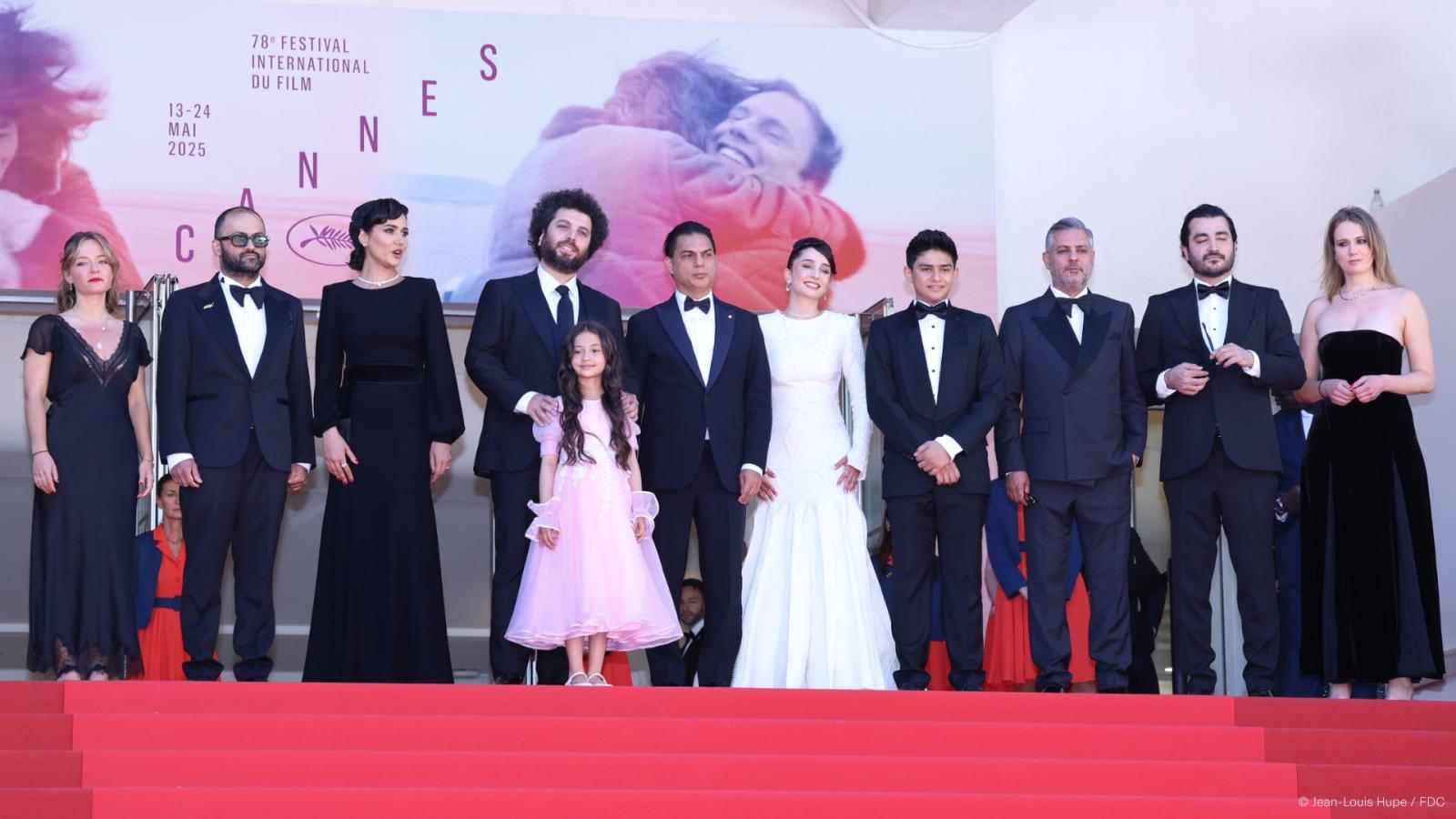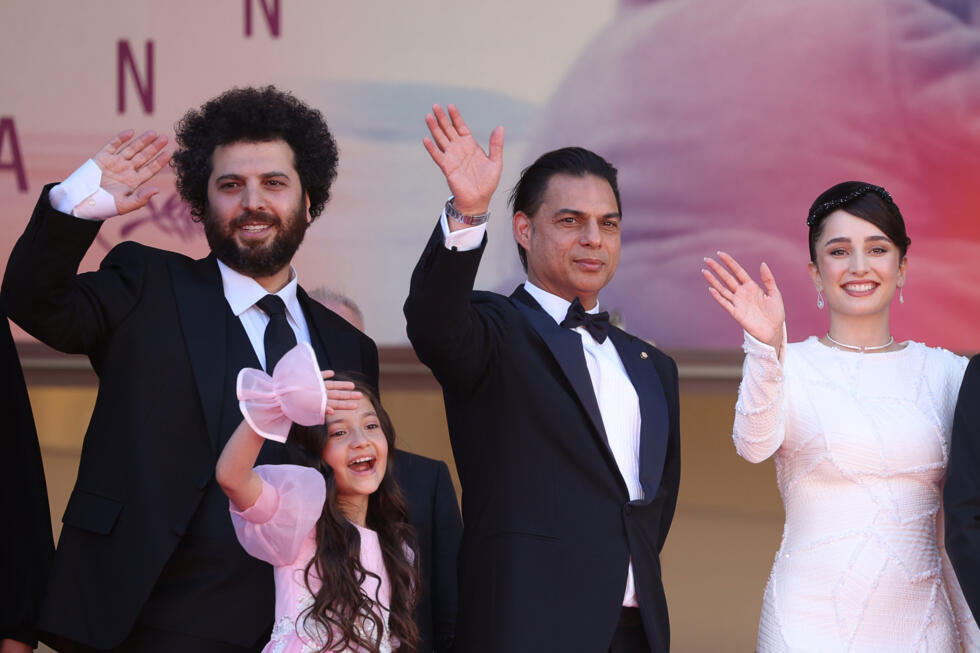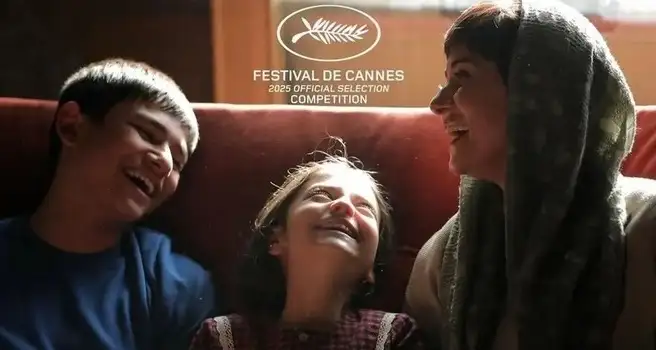For the second time, Saeed Roustaee left the Cannes Film Festival without appearing in the official track record, and this remains difficult to understand. In 2022, his remarkable Leila and her brothers had certainly won the Fipresci Prize, But had not received any reward from the official jury. This year, with Woman and Childthe Iranian filmmaker nevertheless delivers a new powerful, perfectly mastered film, which would have largely deserved recognition up to his audacity and his depth.
Presented in official selection at the 78th Cannes Film Festival, Woman and Child (Zan o Bachehin the original version) immediately marked the spirits during his first at the Grand Théâtre Lumière. Welcomed by a long standing ovation, this overwhelming film illustrates with strength the social and intimate tensions that agitate Iran today.
Saeed Roustaee, Iranian director born in 1989 in Tehran, has established himself as one of the most relevant filmmakers of his generation. Graduated from Soore University in Tehran, he is known for his incisive works such as Life and A Day (2016) and Tehran’s law (2019), which explore social fractures and violence within Iranian society. Saeed Roustaee is also an artist whose freedom of expression has been put to the test. His film Leila and her brothers (2022), presented in Cannes without the downstream of the Iranian authorities, earned him significant judicial disentangles, with a sentence to six months in prison suspended for “propaganda against the regime”.
Woman and Child Focus on the journey of Mahnaz, interpreted with remarkable intensity by Parinaz Izadyar, a widowed nurse who raises her children alone in contemporary Tehran, with the help of her mother in whom she lives. While she is preparing to start her life with Hamid, her fiancé played by Payman Maadi, a family drama occurs: Mahnaz’s son is sent back from school, and soon, a tragic accident turned the fragile family balance. This intimate shock becomes the revealing of broader, social and political tensions, which cross Iranian society.
The synopsis might seem classic at first sight, but it is in the way in which Saeed Roustaee builds this story that emerges all the strength of the film. The narration is subtle, between suspense and raw emotion, and the director never yields to ease. The film confused by its many narrative reversals, these twists Who jostle our understanding of the characters and their reality, while maintaining a dramatic tension until the last minute. This complex construction, worthy of a psychological thriller, brilliantly marries the rise of palpable social tension in Iran today.
One of the great forces of the film lies in her portrait of a contemporary Iranian woman, confronted with a patriarchal and repressive society. Mahnaz is a figure of independence and resistance, which fights for his freedom and that of her children. But his fight is also that of all Iranian women, locked in a rigid system where the weight of misogynous traditions, laws and religious norms, weighs heavily. Through her, Saeed Roustaee gives a voice to a silent population, a muffled but vibrant cry. This social portrait is all the stronger since it is carried by the intense and fair interpretation of Parinaz Izadyar, praised unanimously by criticism. Many estimated that she deserved the prize of the best female interpretation in Cannes, as her game combines vulnerability and strength, pain and contained rage.


But this major social work has not escaped the controversy. Woman and Child aroused controversy even before its presentation in Cannes. The association of independent Iranian filmmakers (IIFMA) accused Saeed Roustaee of making pro-regime “propaganda”, in particular due to obtaining a shooting permit-perceived as a mark of compromise-and the representation of veiled women, including in scenes taking place in the domestic sphere. According to IIFMA, this would be a betrayal of the movement “Woman, Life, Freedom”, born after the death of Mahsa Amini and which has profoundly upset the Iranian society.
Roustaee replied publicly by explaining that the official authorization was only an essential administrative formality to carry out the feminist film he had in mind. He claimed his work as a “cinema of resistance”, claiming that the film was precisely talking about female emancipation from inside the system, in order to be able to reach the Iranian public.
During the press conference which followed the projection, Roustaee was asked about the question of self -censorship, in particular in the light of the ban in Iran of his third film, Leila and her brothers. He replied that he did not know exactly if, in his unconscious, he was self -censored. Aged 35 and living in Iran, he knows his cinema well, which is part of the continuity of Iranian social cinema for the past 45 years. He does not know how far he is self -censored, if this is the case, but he makes films to be seen by the Iranian public in the rooms of the country. He therefore admits that he is surely paying attention to certain aspects so that this is possible.
Other criticisms have joined this debate, this time within the Iranian diaspora. Some criticize Roustaee for not showing women free or emancipated on the screen, believing that he remains too cautious in his way of representing them. While, in Iranian reality, an increasing number of women choose not to wear the veil in the public sphere, some criticize him for showing veiled female characters at home, which could be interpreted as a form of acceptance or normalization of an imposed standard. Other Iranian directors have, in recent years, sought not to respect this rule: for example Mohammad Rasoulof chose, in his film The devil does not exist (2020)to show non -veiled women in the private sphere; or more recently Jafar Panahi, of whom we see an unveiled woman including in the street in her film A simple accident. Roustaee, through his work, navigates with subtlety in these troubled waters, which can only arouse debates and questions.


In terms of actors management, the film also shines by the complicity between Saeed Roustaee and Payman Maadi, an actor he considers his “favorite actor”. Their collaboration dates back to Life and A Dayand since then, Maadi has often embodied complex characters, revealing the contradictions of Iranian society. In Woman and Childhis interpretation of Hamid adds an additional layer to dramatic tension, between support and family conflict.
The writing of the film also deserves a special mention. The scenario, firmly constructed, explores in a subtle but incisive way the themes of mourning, justice, and the condition of women. What makes the strength of the story is his ability to mix an intimate drama and a deep social criticism. The narrative tension is skilfully orchestrated, each scene bringing its share of revelations and reversals, which makes the progression of the captivating and sometimes disconcerting film. In my opinion, Woman and Child would have deserved a prize for the best scenario in Cannes, as this writing work perfectly matches the psychological complexity of the characters while reflecting Iranian social reality.
The film is therefore a work that testifies to a deep rebellious spirit, a fierce desire to make a female voice heard in a context where it is often reduced to silence. Woman and Child is not only the portrait of an isolated woman: it is also a mirror of contemporary Iranian society, where traditions, religion, patriarchal power and individual aspirations collide painfully.
But beyond his immediate subject, Woman and Child Also asks, in filigree, the very concept of responsibility in a society where the lines of authority are blurred. Where does the authority of a parent start? How far extends that of the State, from tradition, or even from the extended family? By approaching the question of justice and childcare, Saeed Roustaee opens the way to a broader reflection on the way in which patriarchal societies organize – or disorganize – family and social ties. In a country where the legal supervision of children is still mainly entrusted to men, what happens to women when they claim, not a status, but a right to voice, anger, and self-determination?
Moreover, Woman and Child Asks a larger question in hollow: what can cinema in the face of censorship, oppression, or the indifference of institutions can still? How far can a filmmaker resist while remaining audible? How far can he go to defend his freedom of expression and creation? Should we go so far as to leave his country, as Mohammad Rasoulof did? Should we brave justice, as Jafar Panahi did? These questions, left unanswered, extend the scope of the film far beyond the screen-and summon, for spectators as well as for programmers, an urgent reflection on the political and symbolic role of art.
Neïla Driss









